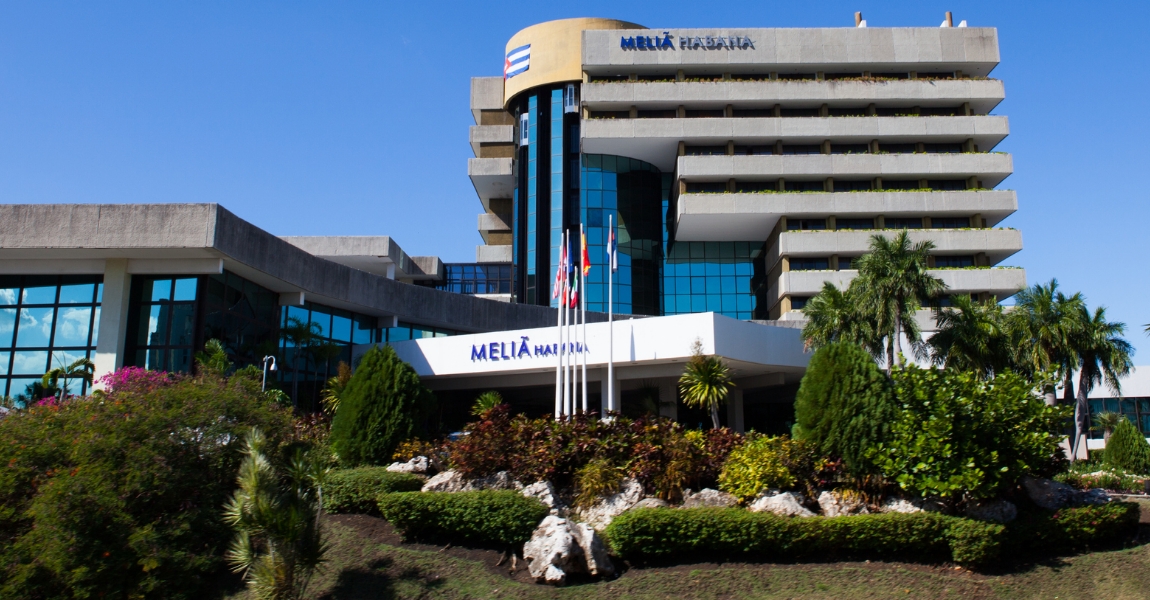The Provincial Court of Palma de Mallorca has ruled out that Spanish courts can decide the proceedings between the US company Central Santa Lucía against Meliá Hotels International, the Republic of Cuba and the Cuban company Grupo de Turismo Gaviota. We review the lengthy legal proceedings that have ended in a favourable ruling for Meliá.
On 19 April 2024, the Provincial Court (Section 4) of Palma de Mallorca issued an order rejecting the appeal presented by the US company Central Santa Lucía, L.C. (CSL), and therefore confirmed the order dated 27 January 2023 of the Court of First Instance no. 24 of Palma de Mallorca, which declared that the Spanish courts lacked jurisdiction to hear the proceedings against Meliá Hotels International (MHI), the Republic of Cuba and the Cuban company Grupo de Turismo Gaviota, S.A. (Gaviota),and consequently ordered the proceedings to be dismissed. CSL has been ordered to assume the costs.
Garrigues has been MHI’s advisor throughout the lengthy legal proceedings that ended very satisfactorily to MHI’s interests.
To fully comprehend this recent and significant decision, it is necessary to revisit the lawsuit brought by CSL in Spain, initially only against MHI, claiming compensation for unjust enrichment due to businesses in Cuba that, according to the CSL, involved the unlawful use of property that would be classified as “confiscated” under the US Cuban Liberty and Democratic Solidarity Act of 1996 (named as the Helms-Burton Act, after the names of its main promoters).
In response to the aforementioned claim, MHI filed a declinatory action, asserting that the Spanish courts did not have jurisdiction to hear the case. Initially, the Court of First Instance No. 24 of Palma de Mallorca upheld the action. the decision was based, in essence, on the understanding that the main dispute was related to the Cuban State’s ownership of the land on which the hotels are located, rather than MHI’s management activity in the hotels that were the subject of the proceedings.
CSL appealed against this decision, which was overturned by the Provincial Court (Section 3) of Palma de Mallorca on 18 March 2020. The court ruled that the Court of First Instance No. 24 of Palma de Mallorca was the appropriate venue to hear the proceedings brought exclusively against MHI. While there were other technical issues related to the nature of the action brought, the court considered that lack of direct claims against the Republic of Cuba (at that time) prevented an early assessment of a lack of jurisdiction and international competence.
Nevertheless, the Provincial Court noted that the lawsuit filed by CSL inevitably required, as a matter of merit, an examination of the lawfulness of the Republic of Cuba’s decisions to nationalize assets from 1959 onwards.
Back to the court of first instance, the proceedings were resumed and MHI answered the claim. In addition to the substantive factual and legal grounds, and the allegation of fraud which it raised in opposition, MHI also raised, as a preliminary plea (among others), the lack of necessary party regarding the Republic of Cuba and the company Gaviota (the Cuban commercial company which exploits the hotels in question). This plea was based on the fact that, as the claim was formulated, the resolution of the dispute would affect the rights of those co-respondents, and therefore they needed to be parties to the proceedings.
By order of 30 November 2020, the Court of First Instance no. 24 of Palma de Mallorca upheld the aforementioned plea of lack of necessary party, requiring CSL to also direct its claim against the State of Cuba and the company Gaviota. In its lengthy reasoning, the court of first instance accepted MHI’s position and insisted once again that the analysis of the possible lack of fair cause of MHI’s business inexcusably required a prior analysis with respect to the alleged illegality of the State of Cuba’s title to the disputed hotels. This question could not be resolved without having the Republic of Cuba and the company Gaviota as parties to the proceedings.
The decision of the aforementioned order, which declared the lack of necessary party regarding the Republic of Cuba and Gaviota, was not appealed by CSL – and therefore became final -. CSL showed its conformity with such decision by extending its claim to also address it against the State of Cuba and Gaviota.
The proceedings thus returned to the initial stage, but this time the Republic of Cuba and the company Gaviota were also included as respondents. Once the claim was served, the Republic of Cuba, through the relevant diplomatic channels, expressly asserted its sovereign immunity; while Gaviota, appeared before the court only to file a declinatory action for lack of jurisdiction.
After initiating a round of pleadings and hearing from all the parties in relation to jurisdiction and international competence, the Court of First Instance No. 24 of Palma de Mallorca issued the aforementioned order of 27 January 2023 declaring the lack of jurisdiction of the Spanish courts to hear the case and, consequently, decreed – once again – the dismissal of the proceedings.
In essence, the court’s criterion was that the procedure could not be processed since the central issue under dispute was protected by sovereign immunity. The analysis of the claim of unjust enrichment necessarily required a prior analysis of the legality of the act by which the Republic of Cuba nationalized the land where the hotels managed by MHI are supposedly located, and this nationalization act is an expression of the sovereignty of a foreign state, for which Spanish courts lack jurisdiction.
This decision was appealed by CSL, which invoked, among other arguments, the infringement of the principles of formal res judicata – based on the alleged contradiction of the decision with respect to the decision of 18 March 2020 by the Provincial Court of Palma de Mallorca (Section 3) – and perpetuatio iurisdictionis, and consequently the jurisdiction of the Spanish courts to hear the claim.
In its recent decision, the Provincial Court of Palma de Mallorca rejected the appeal and, accepting MHI’s position, that it cannot be considered in any way that there is formal res judicata in the sense alleged by CSL, the Court recognized that, when Section 3 of that same court issued the order of 18 March 2020, the only respondent was MHI. However, the plea of lack of a necessary party was later upheld, and the claim was voluntarily extended against the Cuban State and Gaviota.
Moreover, where the Provincial Court did find formal res judicata was with regard to the order of the court a quo which found that there was no necessary party, and, after not being appealed, was voluntarily complied with by CSL.
In addition, the Court has denied the claim that there was as violation of the principle of perpetuatio jurisdictionis, since a binding effect of this principle cannot be invoked for a claim that was brought in an incorrect form, in that excluded mandatory respondents, but only from the time when the defect was remedied, and the excluded defendants were summoned to the proceedings.
For all these reasons, the Provincial Court confirms that it was a question of public policy that imperatively determines the lack of jurisdiction of the Spanish courts as a consequence of the sovereign immunity of one of the necessary co-respondents.
The recent decision of the Provincial Court (Section 4) of Palma de Mallorca is of enormous significance in relation to private international law, insofar as it confirms that Spanish courts cannot assert jurisdiction in cases with multiple respondents, all of whom are necessary parties, and one of them, the state, that does not waive its sovereign immunity.
In practice, the Spanish court has confirmed that, in such cases, the lack of jurisdiction derived from the immunity enjoyed by one of the necessary co-respondents affects the entire proceedings and therefore, in fact, extends to the rest of the necessary co-respondents.
Antonio Entrena López Peña, David Vich Comas, Lisette Hernández del Olmo






